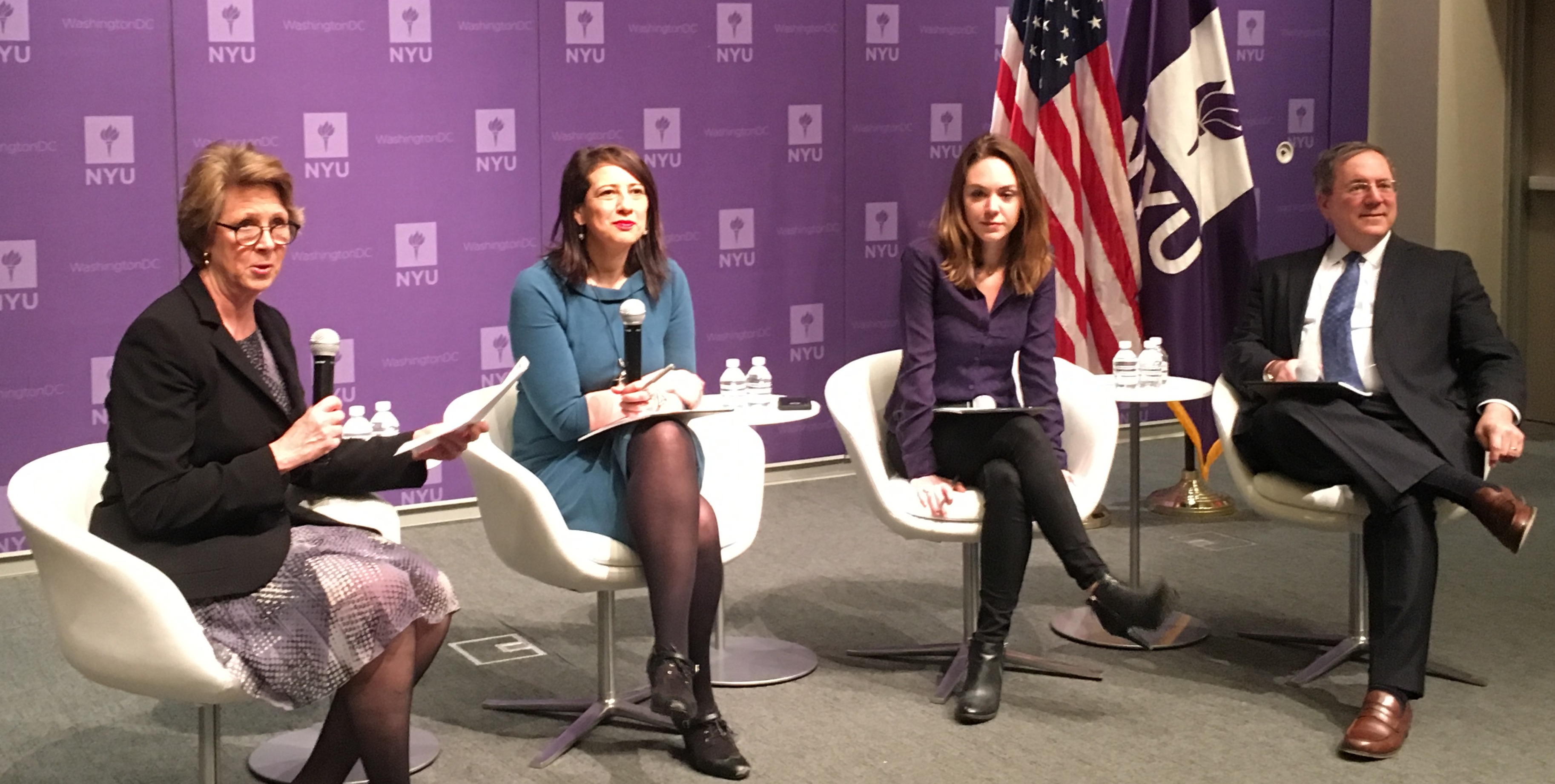
Where is US Foreign Policy?
Fake News, Nuclear Proliferation, and Proxy WarsApril 17, 2018 | Washington, DC Natasha Bertrand, David Sanger, Nancy Youssef, and moderator Elisabeth Bumiller Video | Photos
Washington, DC—On April 17, 2018, New York Times Washington Bureau Chief Elisabeth Bumiller moderated a discussion on Fake News, Nuclear Proliferation, and Proxy Wars with Natasha Bertrand of The Atlantic, David Sanger of The New York Times and Nancy Youssef of The Wall Street Journal. The expert reporters on the panel touched on many of the major flash-points dominating the news cycle including the military strikes on Syria, the proposed summit talks with North Korea, upheaval in Trump's national security team, and the Mueller investigation. The program was held at and co-sponsored by NYU Washington, DC.
The United States' relationship with Russia was a major theme throughout the panel because the tension between the world views of the two countries is evident in many of the foreign policy dilemmas facing the Trump administration. The ongoing Senate Intelligence Committee and Special Counsel Robert Mueller's investigations into Russia's influence on the 2016 election was underlined as a particular strain on the relationship. Natasha Bertrand, who has been covering the Mueller investigation for The Atlantic, said his team is trying to issue a report in the summer about whether President Trump tried to obstruct the investigation, but as a whole, "the investigation is nowhere near finished."
"Mueller is trying to wrap up the obstruction portion of the investigation before he even really begins to delve deep into the collusion aspect," Bertrand said, "It has been ongoing but the obstruction aspect has been quicker to wrap up and the collusion aspect obviously involves more characters." The number of characters passing through or involved in the Trump administration not only complicates the Russia investigation but it also makes it hard to understand what the administration's policy is on any given day. Even Nancy Youseff who is a renowned Pentagon reporter with many years of experience and a whole rolodex of informed sources said the constant turnover of staff in the Trump administration and President Trump's changing remarks leave her frequently confused.
Youseff responded to a question from Bumiller about where and when the proposed summit talks between President Trump and Kim Jong Un would take place. In her response, Youseff expressed her hesitancy to answer the question because of the Trump administration's communication about the summit. She said that first of all, the South Koreans announced this would be happening, not the United States. Then, H.R. McMaster and Rex Tillerson who had been involved in coordinating these talks left the administration. Furthermore, the administration initially said the talks would happen in May, but then President Trump says maybe the talks will happen in June, maybe not at all. "It's so hard for me to figure out, 'ok where are we'," Youseff said, adding, "I just want to make the case for the confused."
Sanger said that the confusion between the State Department and the White House should abate somewhat with Mike Pompeo leading the department instead of Rex Tillerson. Tillerson had the worst combination—he was a secretary of state who was shrinking the place so he didn't have the support of the career employees, and he didn't have the ear of the President. Sanger said that morale within the department was low because employees felt that if the President is ignoring the secretary of state, then he is going to ignore the advice coming through the State Department. "Mike Pompeo, whether you believe it or not, said all the right things about rebuilding the State Department in his confirmation hearing, and clearly has the confidence of the President," Sanger said, "I think they're in a slightly better place."
Bumiller ended the event by asking the panelists to predict where what we'll be talking about a year from now, and they expressed their interest in how the North Korea talks pan out, the extent of the United States' role in Syria, and whether or not tensions with Russia subside. Sanger expressed his worries that "as the Mueller investigation goes on and particularly as the Cohen investigation Gets into the President's business dealings that the President himself is going to be looking for ways in foreign policy to focus his attention elsewhere," so there's a chance there will be even more to talk about in foreign policy news next year.
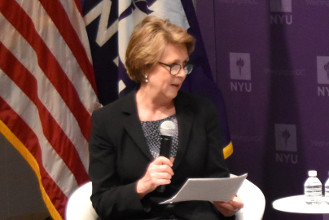 |
 |
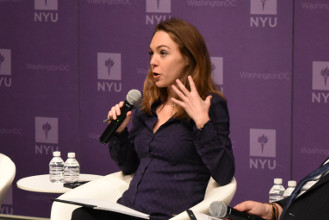 |
|
WFPG Board Member and New York Times Washington Bureau Chief Elisabeth Bumiller introduces panelists
|
|
Natasha Bertrand, staff writer at The Atlantic
|
|
|
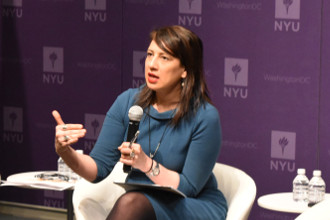 |
 |
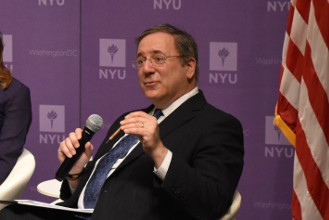 |
|
Nancy Youssef, national security correspondent for
The Wall Street Journal.
|
|
David Sanger, national security correspondent and
senior writer for The New York Times
|
|
|
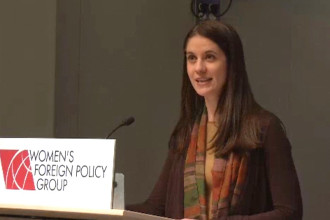 |
 |
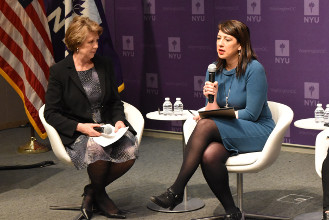 |
|
WFPG Executive Director Kim Kahnhauser Freeman
|
|
Elisabeth Bumiller and Nancy Youssef
|
|
|
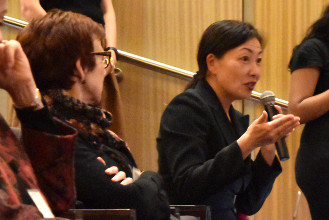 |
 |
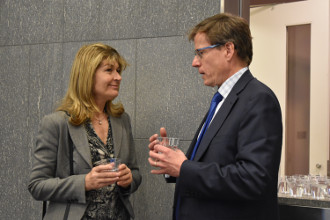 |
|
Participant asks a question
|
|
WFPG Member Mihaela Ulieru and
Martin Loken of the Embassy of Canada
|
|
|
|
|
|